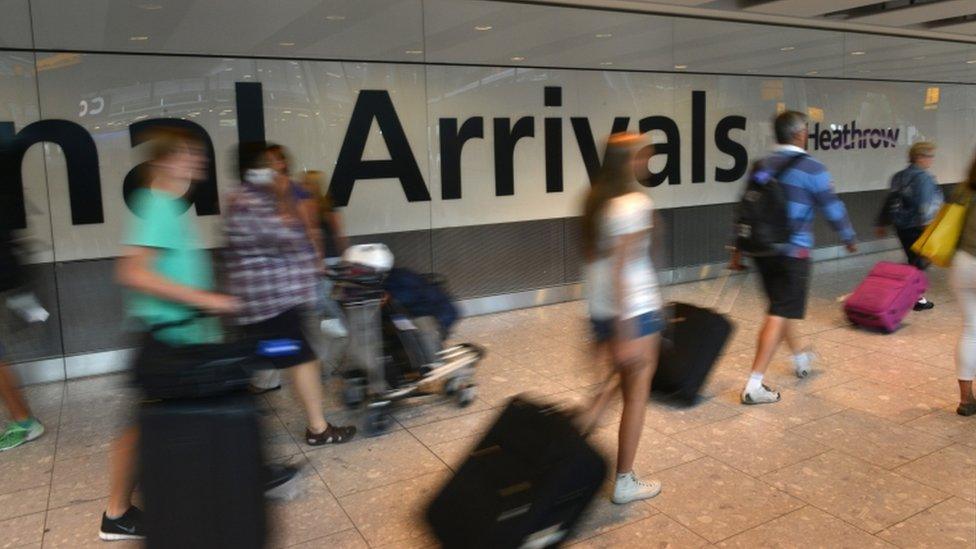Failure to deport foreign criminals casts doubt on EU - MPs
- Published
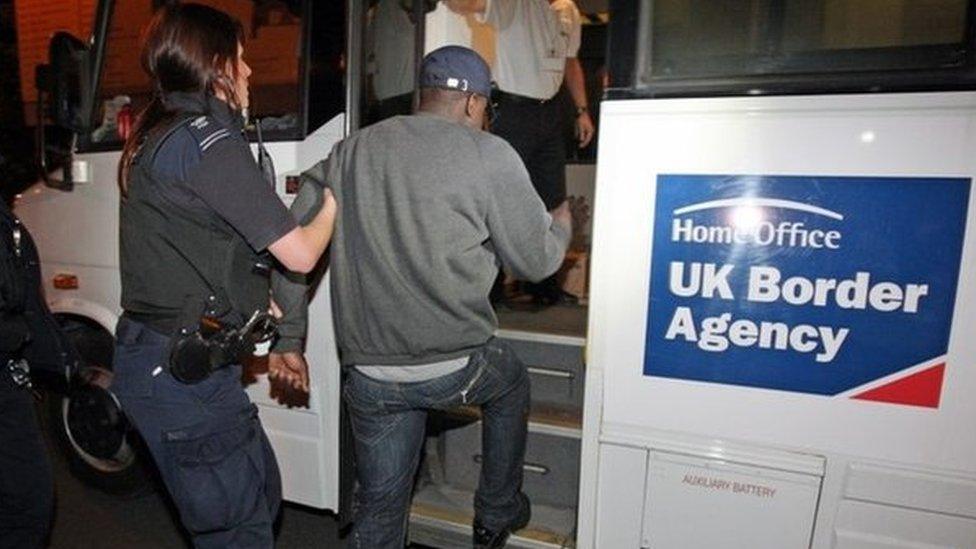
Failure to deport 13,000 foreign criminals - equivalent to a "small town" - will lead people to "question the point" of the UK remaining in the EU, the Home Affairs Committee says, external.
It was "deeply concerning" that 5,789 overseas criminals were free in the UK, more than anytime since 2012, MPs said.
The top three nationalities among the offenders were Polish, Irish and Romanian - all EU nations - they said.
The Home Office said it deported record numbers of EU criminals last year.
However, the cross-party committee said progress has been "too slow".
'Clear inefficiencies'
The total number of foreign national offenders currently in the UK - both in detention and living in the community - was over 13,000, or "the size of a small town", it said.
MPs criticised the Home Office for consistently failing to remove convicts, despite their home nations being part of the 28-member bloc.
Polish criminals accounted for 983 offenders, while 764 were from Ireland, and 635 from Romania, their report said.
The issue would undermine the public's confidence in the UK's immigration system, and faith in Britain's EU membership, they warned.
"The clear inefficiencies demonstrated by this process will lead the public to question the point of the UK remaining a member of the EU," the report said.
'Repeated warnings'
Home Secretary Theresa May was "unconvincing in suggesting that remaining a member of the EU will make it easier to remove these individuals from the UK", it said.
They called on the government to take urgent action to "significantly" reduce the 13,000 overall number of foreign convicts in the country.
Committee chairman Labour MP Keith Vaz told BBC Radio 4's Today programme: "There are two problems that seem to have confronted the Home Office. The first is the unwillingness of some countries to take their citizens back, but also I think it is the process that we have."
Mr Vaz suggested that foreign offenders should give up their passports when they are sentenced and that when they come out of prison the process of removing them from the country should start immediately.
"The public would expect our membership of the European Union to make it easier to deport European offenders, but this is clearly not the case, and we continue to keep thousands of these criminals at great and unnecessary expense," he said.
Mr Vaz also called on Commonwealth countries to "take their citizens back", saying there was a high number of foreign national offenders from Jamaica, Pakistan, Nigeria and India.
John Attard of the Prison Governors' Association also told the programme that it was up to the Border Agency to remove foreign national offenders, adding that paying for prisoners who could be incarcerated elsewhere was a drain on resources.
'Less safe'
Vote Leave claimed the foreign offenders were costing £36,000 a year each to jail, and that the EU made it "more difficult" to deport overseas criminals.
Justice Minister Dominic Raab, who backs Brexit, said: "The EU is making us less safe. If we take back control we will be able to deport foreign criminals from our prisons."
But Home Secretary Theresa May, who backs remaining in the EU but withdrawing from the European Convention on Human Rights, said foreign criminals "should be in no doubt of our determination to deport them".
"Last year we removed a record number of foreign national offenders from this country, including a record number of EU criminals," she said.
"Being in the EU gives us access to criminal records sharing and prisoner transfer agreements which help us better identify people with criminal records and, allow us to send foreign criminals back to their home countries to serve their sentences."
MPs also warned it would take a "modern miracle" for David Cameron to meet his "no ifs, no buts" pledge to cut migration to under 100,000.
Latest figures from the Office for National Statistics estimate net migration to the UK rose to 333,000 in 2015 - the second highest figure on record.
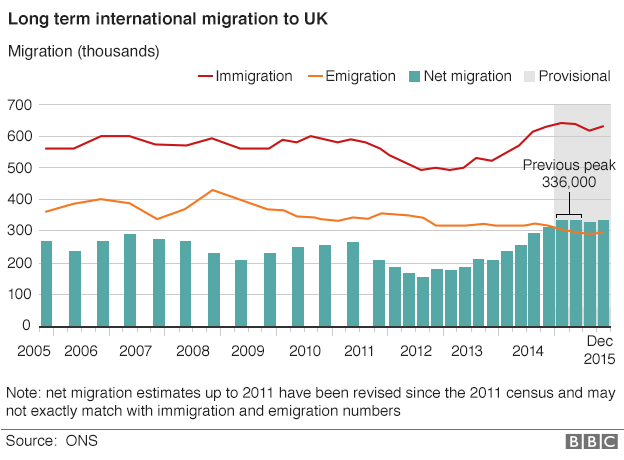
During a live Q&A on Sky News on Thursday, David Cameron said migration could be managed if the UK remained inside the EU and it would be "madness" to try to control it by voting to leave.
Mr Cameron said he did not accept that his pledge to cut immigration below 100,000 could not be achieved within the EU.
But Vote Leave's Iain Duncan Smith said it was "telling" that Mr Cameron had not given a timetable for achieving this goal.
The Home Affairs Committee's wide-ranging report also said it was "deeply concerning" that there had been so little improvement in the immigration backlog, which stood at about 345,400 at the end of last year.
- Published3 June 2016
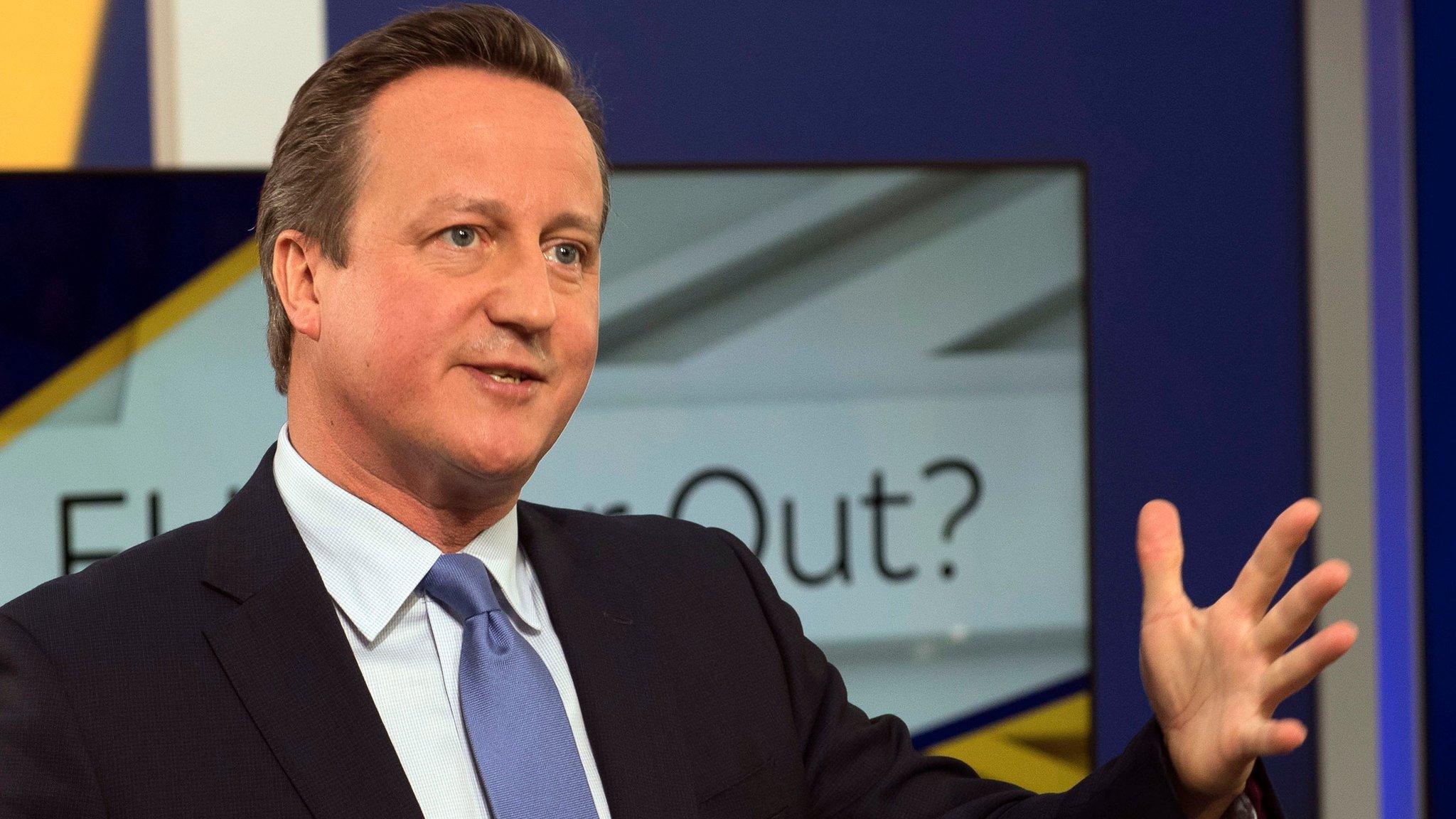
- Published25 May 2016
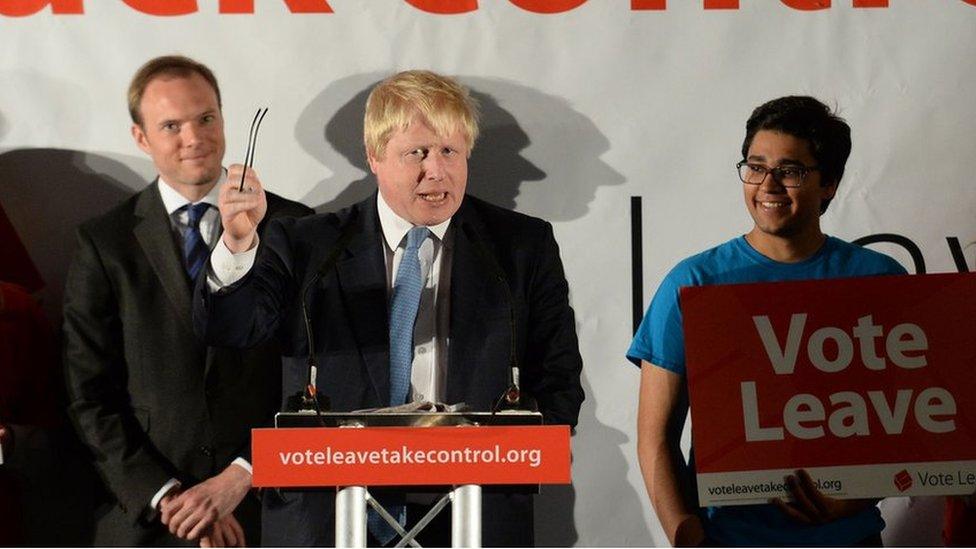
- Published26 May 2016
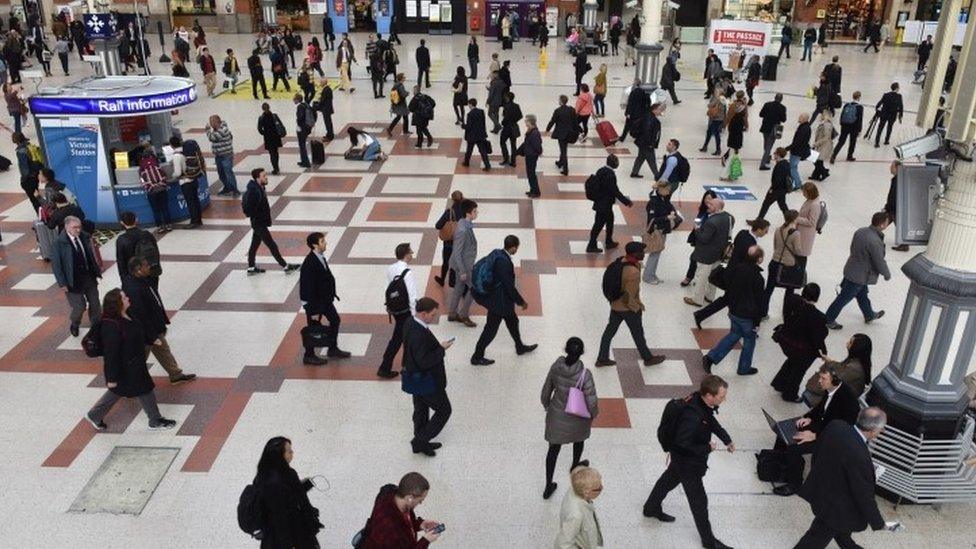
- Published27 May 2016
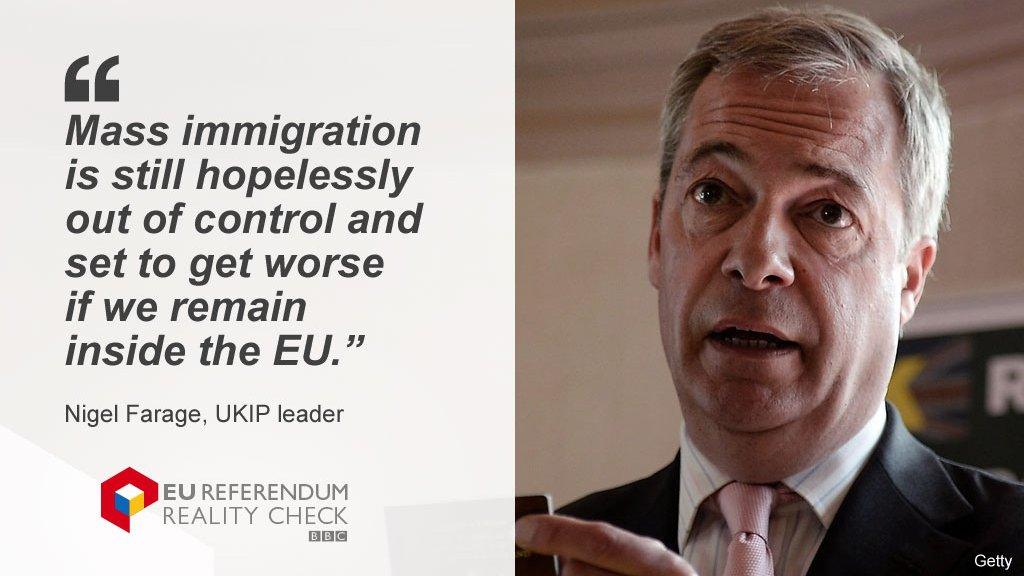
- Published29 May 2016
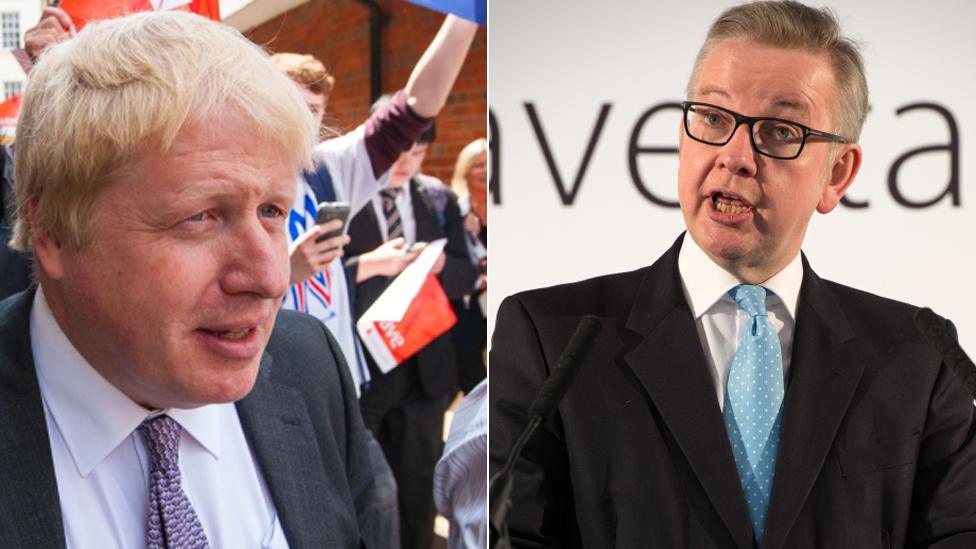
- Published12 May 2016
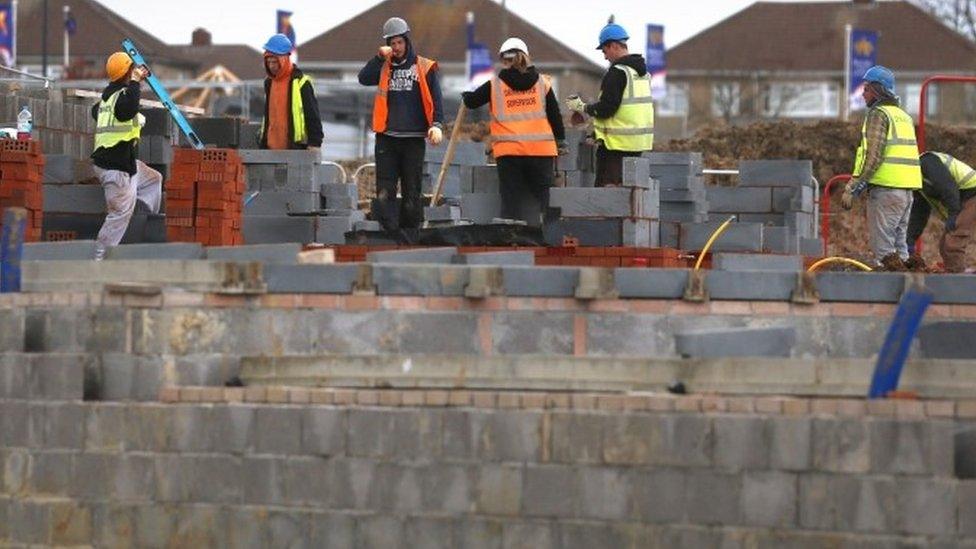
- Published27 January 2016
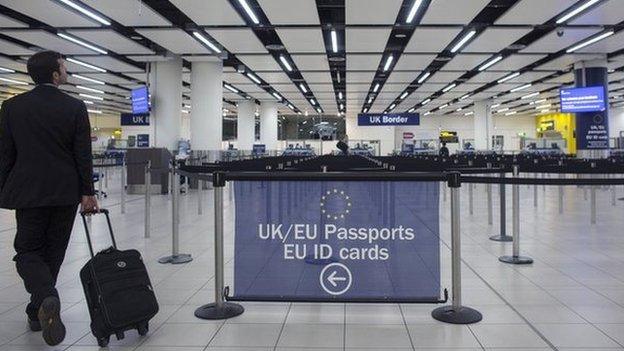
- Published2 June 2016
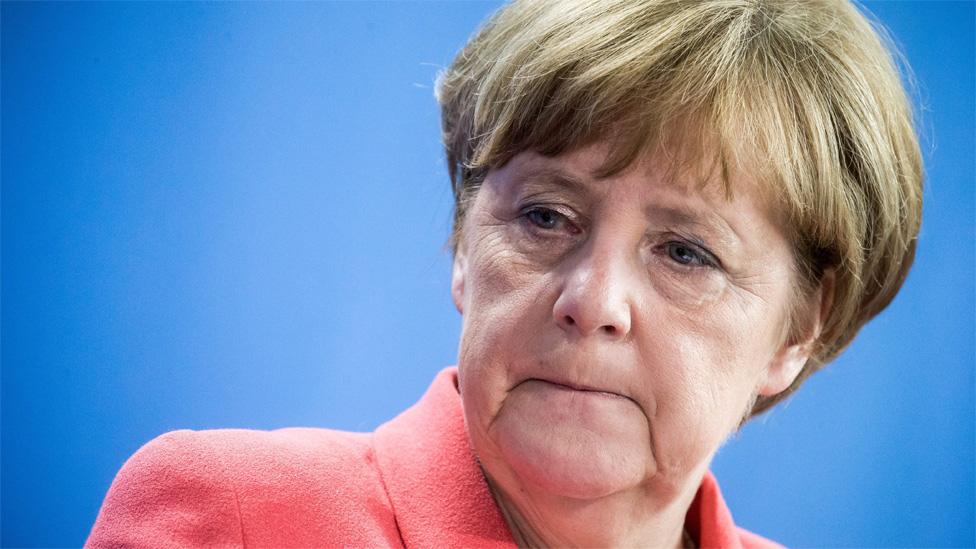
- Published16 June 2016
